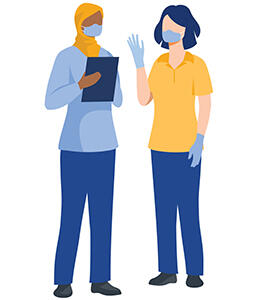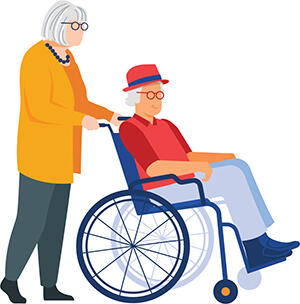Primary care is often the first contact you have with the health system. It is usually delivered by family doctors or nurse practitioners. You can access primary care services and providers through your local Primary Care Network (PCN).
Within a PCN, teams of providers work together so that all your care is coordinated. Primary care includes things like renewing a prescription, getting a routine health checkup or getting support to manage a chronic disease.
Settings where you may receive care include Family Practice Clinics, Urgent and Primary Care Centres, Nurse Practitioner Primary Care Clinics, First Nations Led Primary Care Centres, Foundry Centres, Community Health Centres and other health clinics.





